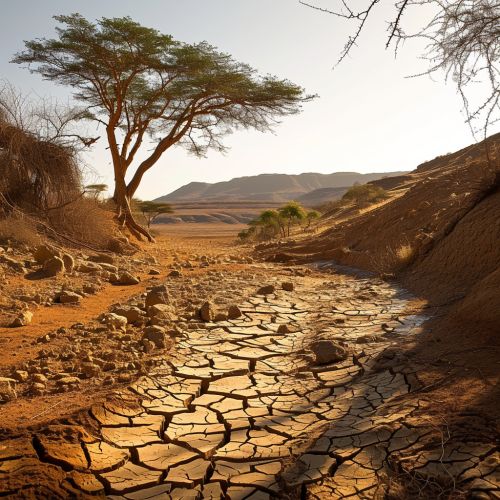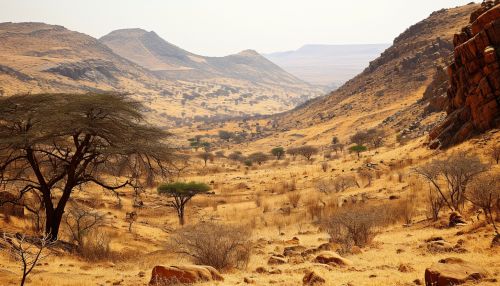Climate Change Effects in Africa
Introduction
Climate change, a long-term shift in global or regional climate patterns, is a significant issue affecting the entire world. In Africa, the effects of climate change are particularly severe due to the continent's high vulnerability and low adaptive capacity. This article will delve into the various impacts of climate change in Africa, including changes in temperature and precipitation, effects on agriculture and food security, impacts on health, and the socio-economic consequences. Climate change is a complex issue, and its effects are interrelated, making it a critical area of study for scientists, policymakers, and the public alike.
Changes in Temperature and Precipitation
Africa has experienced significant changes in temperature and precipitation patterns due to climate change. The Intergovernmental Panel on Climate Change (IPCC) reports that average temperatures in Africa have increased by more than 0.5°C over the last 50 to 100 years, and this trend is projected to continue. This increase in temperature is expected to lead to more frequent and intense heatwaves, which can have severe impacts on human health and agriculture.


Precipitation patterns are also changing, with some areas experiencing more rainfall and others less. These changes can lead to increased flooding in some areas and drought in others, both of which can have significant impacts on human livelihoods and the environment.
Effects on Agriculture and Food Security
Agriculture is a critical sector in Africa, employing a large percentage of the population and contributing significantly to the continent's GDP. However, agriculture in Africa is heavily dependent on rainfall, making it highly vulnerable to changes in precipitation patterns. Increased temperatures can also affect crop growth and reduce yields, threatening food security.
Changes in temperature and precipitation can also affect the distribution of pests and diseases that affect crops, further threatening food security. For example, warmer temperatures can increase the range of pests such as the Fall Armyworm, which can devastate maize crops.
Impacts on Health
Climate change can also have significant impacts on health in Africa. Increased temperatures can lead to more frequent and intense heatwaves, which can cause heat-related illnesses and deaths. Changes in precipitation can affect the availability of clean water, leading to increased risk of waterborne diseases.
Climate change can also affect the distribution of vector-borne diseases such as malaria and dengue fever. For example, warmer temperatures can increase the range of the mosquitoes that transmit these diseases, putting more people at risk.
Socio-economic Consequences
The socio-economic consequences of climate change in Africa are significant. Changes in temperature and precipitation can affect agriculture, leading to reduced crop yields and increased food insecurity. This can lead to increased poverty and social instability.
Climate change can also lead to increased migration as people are forced to move due to changes in their local environment. This can lead to increased conflict as people compete for limited resources.
Adaptation and Mitigation
Despite the significant challenges posed by climate change, there are also opportunities for adaptation and mitigation. Adaptation strategies can help reduce the vulnerability of communities to the impacts of climate change, while mitigation strategies can help reduce greenhouse gas emissions and limit future climate change.
Adaptation strategies can include changes in agricultural practices, such as the use of drought-resistant crops, and the development of early warning systems for extreme weather events. Mitigation strategies can include the promotion of renewable energy sources and the implementation of policies to reduce greenhouse gas emissions.
